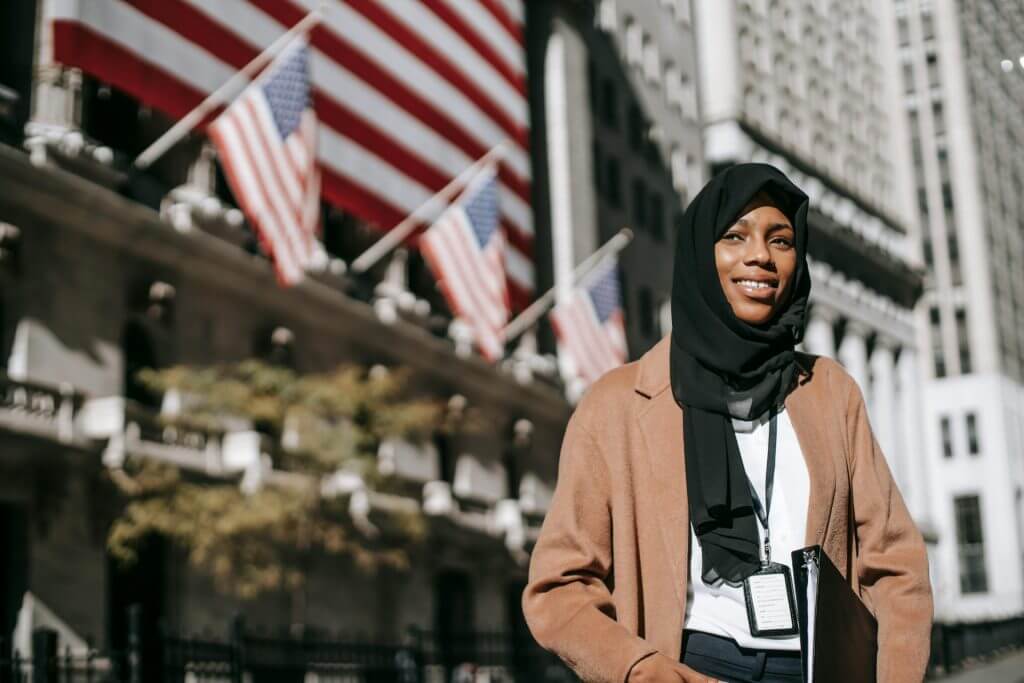As we have seen, certain victims of certain crimes can obtain a Green Card through special visas. Such is the case, for example, with the T and U visas. Now, what about the VAWA program? Today we will look at everything you need to know about VAWA residency.
If you were a victim of domestic violence or some other crime, it is important to seek help to get out of that situation and regularize your status. A lawyer can assist you in both processes, accompanying you in each step. At Urbina Immigration Law we are here for you. Tell us about your case and get the help you deserve.
Table of Contents
What is a VAWA self-petitioner?
A self-petitioner under VAWA (Violence Against Women Act) is a person who applies for permanent residence in the U.S. without the support of a sponsor (spouse, parent, or child). Recall that this program allows victims of domestic violence to file a petition on their own to obtain legal protection and stability.

Who can obtain VAWA residency?
While any self-petitioner may apply for VAWA residency, there are certain conditions must be met to obtain it. Some of the main requirements are:
- Have an approved or pending VAWA self-petition (Form I-360).
- Be able to prove that you were a victim of domestic violence (and therefore deserving of a favorable exercise of discretion by USCIS).
- Be physically present in the U.S. at the moment of filing Form I-485 (Application for Adjustment of Status).
- Be eligible to receive an immigrant visa.
- Have an immigrant visa available at the time you file Form I-485 and when USCIS decides on your application.
- Not be subject to any adjustment veto.
- Be admissible to the U.S. for permanent residence or be eligible for a waiver of inadmissibility.
Fulfillment of these requirements is essential to obtain VAWA residency. Therefore, it is essential to consult with an attorney to ensure that you comply with all of them before filing your application. At Urbina Immigration Law we can help you. Contact us and take the first step towards your green card.
How to obtain VAWA residency?
The process for obtaining VAWA residency can be summarized in the following steps:
Step 1: Apply for the VAWA Visa
First, you must have an approved or pending VAWA visa to apply for residency. To do this, you must file Form I-360. If an immigrant visa is available at that time, you may file your adjustment of status application without waiting for approval of your VAWA visa.
Step 2: Form I-485
En segunSecond, you must apply for and complete Form I-485 (Application for Adjustment of Status). If you are a VAWA self-petitioner as an immediate relative, you may file at any time. Otherwise, you must check visa availability and wait for a visa to become available.
Step 3: Submit Forms I-485 and I-360
After completion, file Form I-485 along with Form I-360 while this last one is pending or after approval. Also check the Department of State’s Visa Bulletin for visa availability and priority dates.
Step 4: Change I-485 Application (if your case warrants it)
If you already have a Form I-485 pending based on an I-130 petition approved by your abusive relative, you must notify the local USCIS office to change your application to be based on your VAWA self-petition. The deadline to request such a change is 30 days.
Step 5: Consular Processing (if your case warrants it)
Finally, if you are abroad, you will need to follow the consular process to apply for VAWA residency. Remember that you will need to submit all documentation and supporting evidence again for consular officers to review.

Please note that, depending on the particularities of your case, there may be some extra steps, especially during the consular process. Therefore, it is best to have an immigration attorney advise you. At Urbina Immigration Law we can accompany you in every step of the process. Tell us about your case and avoid problems with your application.
What documents do I need to obtain VAWA residency?
To obtain VAWA residency you must submit the following documentation:
- Form I-485, Application to Register Permanent Residence or Adjust Status.
- Form I-693, Medical Report and Immunization Record (submit with Form I-485 at a later date or during your interview, if applicable).
- Two passport photos.
- Copy of the following documents:
- Form I-797 (Notice of Approval or Receipt) of your Form I-360 (unless you are filing it with Form I-485).
- Government issued photo identification document.
- Birth certificate.
- Page of the passport that holds the non-immigrant visa (if applicable).
- Passport page that has the admission stamp or entry permit issued by a U.S. immigration officer (if applicable).
- Form I-94 (Arrival/Departure Record) or the admission stamp or entry permit placed by CBP on your travel document (if applicable).
Please note that, depending on your case, you may need certain additional documentation, such as immigration waivers or criminal records. Therefore, it is best to consult with an attorney about the necessary documents for your situation. At Urbina Immigration Law we can help you. Tell us your case and let’s get your papers in order.
Can I apply for VAWA residency for my family?
Yes. Certain family members may qualify as derivative applicants for VAWA residency. These are:
- Spouse: You may file your application if you are or were the abused spouse of a U.S. citizen or permanent resident. You may also include your unmarried children under 21 years of age if they have not yet filed their own application.
- Parent: You may file on your own if you are the parent of a U.S. citizen and you have been abused by your U.S. citizen child.
- Child: You may file on your own if you are an abused child under 21 years of age, unmarried, and were victimized by your citizen or permanent resident parent. In addition, you may file on your own as a minor under the age of 21 but before your 25th birthday if you can show that the abuse was the main reason for the delay in filing.
Please note that the Child Status Protection Act (CSPA) allows certain individuals to be considered minors even if they have reached the age of 21. Therefore, it is important to consult your situation with a professional attorney. At Urbina Immigration Law we can help you. Tell us your case and let’s get together your permanent residency.
Is an interview for residency through VAWA necessary?
Yes, an interview is required for residency through VAWA. This focuses on verifying the veracity of the abusive relationship and the applicant’s eligibility. You may be asked questions about the history of abuse, the relationship with the abuser, and the evidence presented in the application.
How long does it take to get residency through VAWA?
VAWA residency processing time can take anywhere from 12 to 36 months or more. This varies depending on factors such as USCIS workload, case complexity and other individual factors. Therefore, it is important to prepare a complete and accurate application to expedite the process.
Can I apply for employment authorization if I have a Form I-485 pending?
Yes, you can apply for employment authorization with an adjustment of status petition pending. To do this, you must file Form I-765 (Application for Employment Authorization) with USCIS. Remember that working in the U.S. without the proper permits is a crime punishable by fines, imprisonment or even deportation.
Can I travel outside the United States while my Form I-485 is pending?
Yes, you may travel outside the United States with a Form I-485 in process. To do so, you must apply for an advance permission document by filing Form I-131 (Application for Travel Document).
Are there any grounds of inadmissibility that may affect my VAWA residency application?
Yes, certain grounds of inadmissibility may affect your VAWA residency application, even though self-petitioners are exempt from adjustment vetoes. These grounds are listed under section 212(a) of the INA and include public charge and illegal entry or re-entry into the country.
Legal Aid for Residency through VAWA
As we have seen, a VAWA self-petition can be the gateway to obtaining permanent residency in the United States. However, applying for it has its difficulties. Not only can the process be very changeable, but the documentation and status of the applicants involved also varies from case to case.
Therefore, it is best to seek the help of a lawyer to deal with this process. They can provide you with the support you need, helping you every step of the way and helping you navigate through the immigration system. You are not alone. At Urbina Immigration Law we can help you. Contact us and let’s take the first step towards a better life together.
Sources
USCIS – Permanent Residence for VAWA Self-Petitioners
USCIS – Abused Spouse, Children and Parents
USCIS – I-360, Petition for Amerasian, Widow(er), or Special Immigrant
USCIS – I-485, Application to Register Permanent Residency or Adjust Status
Other resources
Permanent Residence for Victims of Violence or Crimes
What is Form I-485 and how to apply for permanent residence
T Visa application: process, requirements and more details
T Visa: How long does it take to be approved?
Once the T visa is approved, is it possible to travel?
Asylum Residency: Essential Information and Advice
If I have my asylum residency, can I travel to my country?
How to obtain a Green Card in the United States – Updated Guide
What are the Green Card categories?
Renewal of permanent residency in the United States: steps and documentation
How to apply for American residency by family petition, step by step
What is a Migratory Waiver and how should I apply for it?
Did you know that illegal re-entry into the United States has serious consequences?


